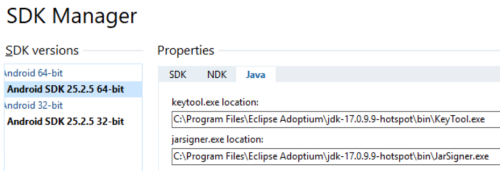-
Content Count
438 -
Joined
-
Last visited
-
Days Won
5
Posts posted by Cristian Peța
-
-
-
Just wanted to try a fix in FMX.Forms and I found it already there but commented 🤔.
First two lines will exit and AlignObjects() will not be called if used Form.BeginUpdate. The Realign will be done anyway after Form.EndUpdate.
procedure TCustomForm.Realign; begin // if FDisableAlign or (FUpdating > 0) then // Exit; ... more code if FCanvas <> nil then begin AlignObjects(Self, Padding, FCanvas.Width, FCanvas.Height, FLastWidth, FLastHeight, FDisableAlign); RecalcControlsUpdateRect; InvalidateRect(ClientRect); end; end;
-
Using arrRect.SetBounds() you avoid a call to AlignObjects because TControl.SetBounds is checking some things before a call to AlignObjects
Avoid setting TPosition.X -
1 hour ago, domus said:It is doing this with all controls, right, not just TRectangles?
More or less all Form.Children.
AlignObjects().DoAlign() enumerates all Form.Children but it depends a little if the object supports IAlignableObject interface.
-
FMX.Types.AlignObjects is taking the most time: 97.4% (from VTune)
AlignObjects is not called from TControl.Realign and is going fast when rectangles are on TLayout.
But when rectangles are on a form, AlignObjects is called from TCustomForm.Realign and is taking the most time
FMX.Types.AlignObjects($4BD50A0,$4C4C860,640,480,640,480,False) FMX.Forms.TCustomForm.Realign FMX.Controls.TControlHelper.PositionChanged(???) FMX.Types.TPosition.DoChange FMX.Types.TPosition.SetX(1) Unit1.TForm1.Button1Click($4BEFDE0)-
 1
1
-
-
Can you reproduce in a small project that you can post here?
-
 1
1
-
-
1 hour ago, domus said:I'll keep investigating, but I lost quite a bit of time trying to pinpoint this thing, so it'll be in (obsessed) background mode.
Have you tried with a profiler?
-
-
I suppose you want something like this:
* ReportTitle (logo + ...)
* Header
- RichText- Column names (if you need them)
* MasterData connected to the table
- table fields that will be printed for every table record* Footer
- RichText
* PageFooter (for Page Numbers) -
Reading again I'm asking myself if you know what MasterData is. You connect MasterData to a table and MastedData will be printed for every line in that table.
To put a TableObiect into a MasterData is somehow strange for me. You will print a table for every record of a table.
-
On 6/13/2025 at 2:43 PM, Squall_FF8 said:And it didnt work:
- The TableObject is not shown!What didn't work?
The MasterData is not shown or only TableObiect?
Have you set MasterData.DataSet? Do you have something in that table?
And you want to print that RishText for every line in that MasterData table?
-
On 1/9/2025 at 3:47 AM, Vincent Parrett said:Note that to use Yubikeys with Signtool - you need to have the MiniDriver installed (you will get the smartcard pin prompt when calling sign tool)
Then you need to enter the pin every time you use Signtool with Yubikey?
-
- b8_1 := P8^ shl ShiftAmnt; + b8_1 := Byte(P8^ shl ShiftAmnt); //(3 shl 7) do not fit into Byte - b8_1 := P8^ shl ShiftComp8; + b8_1 := Byte(P8^ shl ShiftComp8); - PoweredFactor, Power, iFactor: integer; + PoweredFactor, Power, iFactor: uint32;
After some changes in /run/utilities/uTPLb_HugeCardinal.pas no more errors... but it works?
If it worked with range checking OFF then probably it will work.
-
Maybe using SameValue(number, 0.965, 0.001)?
Or if you need all the precision the test binary.
-
DataSnap uses Indy and Indy does not work with Windows SChannel.
A solution would be to statically link OpenSSL library into executable like it was done for Android.
-
Just now, Rollo62 said:Germany has B2B only too.
It was a fast forward for us. There was many disruptions. For some electricity companies it was impossible to use it at beginning because it was incompatible with what our energy regulatory authority asked.

-
 1
1
-
-
3 minutes ago, Attila Kovacs said:Okay, which format do you use there?
This is from an invoice B2C:
<Invoice xmlns="urn:oasis:names:specification:ubl:schema:xsd:Invoice-2" xmlns:cac="urn:oasis:names:specification:ubl:schema:xsd:CommonAggregateComponents-2" xmlns:cbc="urn:oasis:names:specification:ubl:schema:xsd:CommonBasicComponents-2"> <cbc:UBLVersionID>2.1</cbc:UBLVersionID> <cbc:CustomizationID>urn:cen.eu:en16931:2017#compliant#urn:efactura.mfinante.ro:CIUS-RO:1.0.1</cbc:CustomizationID>
-
9 hours ago, Attila Kovacs said:(Interesting that there is a B2C implementation in NO, whereas in the EU it's only for B2B, as you can't pass the gross prices, only the net.)
In Romania B2C is mandatory. It's working already.
-
5 minutes ago, Rolphy Reyes said:But I found the right way to send the file.
How I supposed, as a field and not directly into the body.
-
 1
1
-
-
I understand from the error message that you need to send the file as a "xml" field and not directly in body.
How it is working in PostMan? The XML is also in the body or you define a field named "xml" containing the file?
-
Windows for ARM.
There was some discussions before. See
-
 2
2
-
-
-
56 minutes ago, Squall_FF8 said:That part is quite hacky ... When I change in the form and try to go back to pas, I get error in the IDE.
First in pas then in dfm
-
3 minutes ago, Squall_FF8 said:how to view the .dfm as text
Right-click on the form and in contextual menu select "View as text"
EDIT: or Alt-F12 to switch between.
![Delphi-PRAXiS [en]](https://en.delphipraxis.net/uploads/monthly_2018_12/logo.png.be76d93fcd709295cb24de51900e5888.png)



programmatically determine the edition of RAD Studio 12.3
in Delphi IDE and APIs
Posted
I don't have an answer but the edition is in the license. And I don't think there is a public API to read it.
But if you run ddc32 with different small projects the messages can tell you something about this.